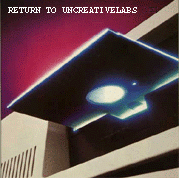| Author |
Message |
Anonymous Coward

Joined: 20 Nov 2004
Posts: 589
Location: Shandong, China

|
 Posted:
Wed Oct 17, 2007 8:59 am Posted:
Wed Oct 17, 2007 8:59 am |
  |
Who was it in here that was running their ISA bus at 16MHz?
From what I understand, some cards (such as the Mach64), are infact capable of running at this speed. However, in most cases this is useless since none of the other ISA cards on the bus are likely to work at that speed. So, the solution is to replace those cards with new ones that work at 16MHz.
Are there any network cards, or sound cards that are happy at 16MHz? |
|
|
   |
 |
ryan

Joined: 19 Apr 2006
Posts: 261
Location: WisConSin

|
 Posted:
Thu Oct 18, 2007 1:15 am Posted:
Thu Oct 18, 2007 1:15 am |
  |
I had gotten mine up to 20mhz no problems (25mhz and the hd would always corrupt), generic isa ide multifunction card with an old Quantum fireball 540mb hd, trident 1mb video card and an old 14.4 modem. I managed this on a overclocked 486sx25 to 40mhz (80mhz crystal) with a 1/2 bus ratio on an old micronics motherboard. I could actually make the crappy trident run halfway decent frame rates on video that way. At that time I didn't have enough ram to make it really worth while though.
As for your poor VESA VLB hd performance I think its all in what hd you use and the controller, I had a PIO4 VLB hard disk controller with a AMD 5x86 133 bought new in 96 in a Yorkshire generic computer (anyone remember them?) At that time I usually didn't bother looking at the brand names inside my computer so I can't say what brand it would have been though I know the mobo would probably have been PCChips or Freetech I sold that system at a profit a year later.
This would be a more reputable pentium vlb mobo if you could find one http://stason.org/TULARC/pc/motherboards/A/AMERICAN-MEGATRENDS-INC-Pentium-EXCALIBUR-VLB-Pent.html
http://www.ryston.cz/petr/vlb/pdf/759ads.pdf
Hmm pio4 vlb card, I wonder if any can be found now |
|
|
   |
 |
Anonymous Coward

Joined: 20 Nov 2004
Posts: 589
Location: Shandong, China

|
 Posted:
Thu Oct 18, 2007 3:18 am Posted:
Thu Oct 18, 2007 3:18 am |
  |
20MHz is pretty impressive, but did you do any long term stability testing? Did you have to play with any other settings in the BIOS other than just changing the clock divider. From what I understand it is usually also possible to add wait states.
I tried to find some information on running ISA at high frequencies, but from what I've seen it doesn't seem many companies produced cards that can handle the narrower pulse widths. All sound card manufacturers recommend 8MHz setting. I've never had any luck running at SCSI controller faster than 10MHz (though I do have a 1542CP from 1995 that may do better). It seems that only a few video boards are able to run at high speeds reliably. I think I'd be lucky to get stable operation at 12MHz.
As for the VLB Pentium, I just don't know if it's worth the time or money to change to SCSI. It seems that VLB can only do "bus mastering" between the HDD and controller, so in reality is just a PIO card...be it SCSI or EIDE. PIO4 VLB cards aren't uncommon, I have three of them. Also,I don't think changing motherboards would help at all. The AMI boards are of course wonderful, but my current one runs fine. Besides, I don't call my system the "World's Crappiest Pentium" for nothing. |
|
|
   |
 |
ryan

Joined: 19 Apr 2006
Posts: 261
Location: WisConSin

|
 Posted:
Mon Oct 22, 2007 9:42 pm Posted:
Mon Oct 22, 2007 9:42 pm |
  |
One thing I left out I could not add any more isa cards and my sound card was definately out. Another point of interest is that this was a cacheless plug AKA only cache on the cpu. I did not have any issues for several months running it that way but I also only used it for certain things, emulation, games etc. I did not burn it in so It may well have operated incorrectly in a burn in situation but it did run Windows 95 stably, duke nukem was fine as were my favorite emulated NES games.
16mhz (16.6666) allowed me to use a sound card and the system didn't have any limitations as to the number of isa cards at 20mhz beyond the core 2 cards I had to have I could only seem to get one more in and most cards wouldn't work anyway that did something usefull like a NIC or Modem. |
|
|
   |
 |
|
|
